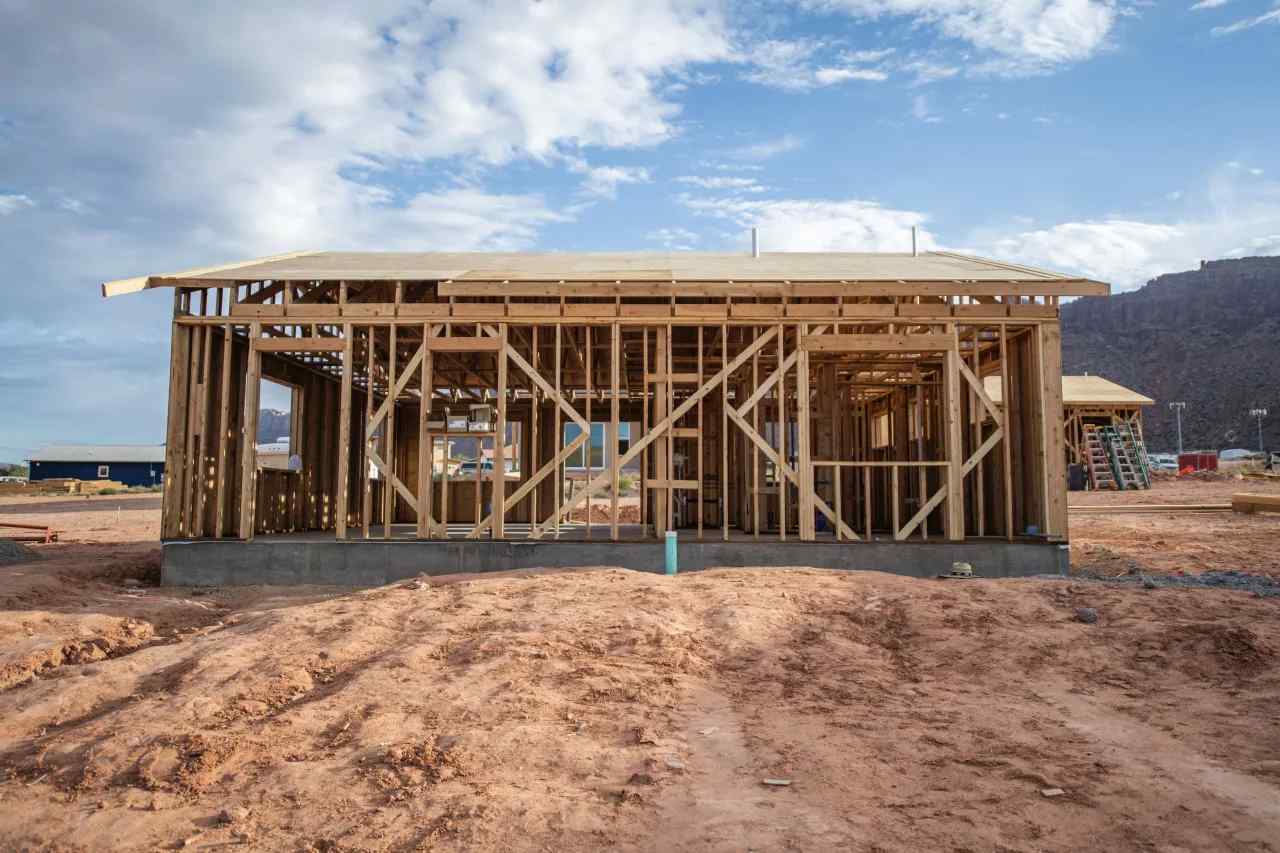They’ve read through the same changes to their lease agreements, but residents of the Grand Oasis manufactured home community have had wildly different reactions to them.
Grand Oasis owner Inspire Communities recently revised its community standards, rules and regulations agreement for the 220 or so families who live in the neighborhood off 500 West.
Much of the boilerplate language governs rules that few residents would likely find objectionable, such as regulations aimed at curbing blight, noise, speeding and criminal activity. But other provisions – particularly revisions that deal with pet ownership and property maintenance responsibilities – have upset some residents and their families.
Inspire Communities representatives Chris and Margaret Taylor of Clifton, Colorado, responded to many of those concerns during a June 21 meeting with about a dozen Grand Oasis residents and their families.
At the outset, Chris Taylor said that he was able to address one of the top concerns that some residents had, based on a false rumor that the new owner planned to change the land use and clear the way for the development of condominiums.
“A lot of them – the moment they heard that we weren’t going to change the use – were thrilled,” he told the Moab Sun News.
Following the loss of other affordable housing units in the community, Taylor said that Inspire Communities is committed to Grand Oasis’ niche as a home for significant numbers of Moab’s workforce.
“We want affordable housing in Moab,” he told the Moab Sun News. “We want those people to stay and enjoy where they are.”
After reading through the agreement – and attending the meeting with the Taylors – Grand Oasis resident Ricky Berry said he doesn’t have any problems with the revisions.
“It doesn’t bother me any,” Berry said. “Basically, all they’re doing is taking the old rules and redefining them, more or less.”
Grand Oasis resident George Srisomsak said that he, too, agrees with most of the terms in the new agreement. He said he appreciates the efforts to reduce vehicular speeds and noise levels, in particular.
“I think their rules are pretty fair,” he said.
But Moab resident Mary Walker Irvin, whose daughters live at Grand Oasis, is concerned about the impacts that the changes could have on lower-income families, and maintained that some of the revisions may be in violation of state code.
In particular, she takes issue with a provision which says that residents shall regularly maintain, paint and repair manufactured homes to the point that they remain in a “clean, attractive and completely operational condition” at all times.
According to Walker Irvin, Chris Taylor said last month that the owners would not expect residents to be responsible for maintaining the exteriors of their homes – a statement that did not reassure her.
“A lot of what he said directly contradicts what is in the document, which is why I’m still concerned,” she said. “It says that all manufactured homes will be maintained, painted, et cetera, by the resident.”
Taylor said there has been some confusion regarding the responsibilities of tenants, as opposed to homeowners, and he sought to clarify the wording in the document.
“Nobody that rents a home that we own would be responsible for repairing it,” he said. “They read that rule (for homeowners) and assumed that it applied to rentals, as well, and it does not.”
Other language in the agreement prohibits the hanging of laundry outside, as well as the installation or placement of flagpoles, wading pools, trampolines, swing sets, basketball hoops and toys, among other things.
“It concerns me greatly because it seems as though they’re trying to shut out families with kids,” Walker Irvin said.
Taylor said that much of that language was already in place; in cases where there have been changes, Inspire Communities sought to beef up its enforcement abilities – with the support of concerned residents.
“The rules just weren’t strong enough before to enforce a lot of that stuff,” Taylor said, adding that Inspired Communities will do its “absolute best” to work with residents who are in violation of any standards.
When everyone is held to the same standards, he said, it not only leads to nicer homes and neighborhoods; the standards improve home values, as well.
“Uniformity is good,” he said.
As for flagpoles, Taylor said that the agreement aims to target gigantic ones that are common in front of schools or federal buildings, and not the kinds of smaller poles that many people use to display flags from their homes.
In other changes, no dog that weighs more than 40 pounds at full maturity, or two dogs who weigh a combined total of 40 pounds, will be allowed in the community.
Grand Oasis’ representatives have since said that they will “grandfather in” larger dogs who currently live with their owners, as long as residents previously followed the correct pet approval procedures.
“We’re not going to make anybody get rid of their dogs,” Taylor said. “That’s crazy.”
However, Walker Irvin is skeptical until she sees that assurance in writing.
“I don’t know how to 100 percent trust them because if something happens, the lawyers are going to go by the document – not what was said,” she said.
Rottweilers, Doberman Pinschers, German shepherds, pit bulls and other breeds are already prohibited from Grand Oasis, and Walker Irvin said the further restrictions are a concern due to the extremely limited availability of pet-friendly affordable housing elsewhere in town.
“Even if you can find a rental that is less than $1,500 (per month), all of them say, “No pets,’” she said.
Residents to see rent increase in August
As of Aug. 1, tenants will see their rents increase by about $15 per month. The increase comes on top of a previous spike in rents last August, according to Walker Irvin.
“(Taylor) says they plan to pour some of the infrastructure money they get from increasing the rents into the playground,” she said. “We’ll see. I’ve heard promises like that before.”
Inspired Communities acquired Grand Oasis about a year ago, and Taylor said the company now intends to spend “a ton” of money on long-delayed improvements, including work on drainage, roads and “crazy” situations with parking.
“The streets are in bad shape,” he said. “There are tons of potholes, and there are some fencing issues … A lot of the monies are going to go straight back into that stuff.”
“They care about the infrastructure,” he added. “They care about the residents; they care about their happiness and safety.”
For Berry, his main gripe has to do with that “crazy” on-street parking: A former neighbor had four cars, and if anyone came to visit, he said, there was always one car out in the street by his house, which created problems for him – in the past, at least.
“My only concern, really, is people parking in the street, and most of that seems to have gone away in the past week,” he said.
Like Berry, Grand Oasis resident Paco Camunez said he thinks that the new agreement is fine.
On occasion, Camunez has had relatively minor problems with some neighbors. While they haven’t been too bad, he said, he’s concerned about residents who speed down the streets, where the posted speed limit is 10 miles per hour.
“They set up a lot of signs, and nobody (pays attention) to them,” he said.
Speeding is also an issue for Srisomsak, who said that drivers zip around a corner near his house and onto a street where children often play.
“There’s one lady in particular – I could probably clock her at 30 miles per hour,” he said.
If there’s one thing that he takes issue with, it’s the new restrictions on the placement and storage of grown-up “toys,” such as RVs and trailers.
In his case, Srisomsak had to find another place to store his camper trailer. Fortunately, he said, a friend who lives elsewhere offered to let him park the RV on his property.
Despite the personal inconvenience, Srisomsak said he understands the need for greater enforcement, citing the example of a neighbor whose dilapidated property stands out for its broken windows and flat tires.
“It’s a total eyesore,” he said.
Taylor said that residents’ overall reactions to the changes have been “pretty positive,” noting later that they came to him with proper concerns about specific issues.
“I think that we’ll be very easygoing and very pleasant to work with,” he added.
Changes draw mixed reactions from residents, family members





